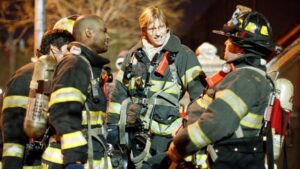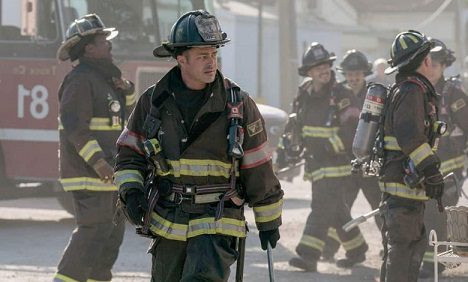American firefighter: As an American firefighter who has seen the devastation of wildfires, I reflect on the missed opportunities and lessons learned during my time in the US. Today, as smoke from massive wildfires in your provinces drifts into our country, I think Canada should listen to its fires and act.
Failure to integrate fire protection into building and infrastructure development was a major US error. The Morse fire in Pebble Beach, California, occurred because the agencies that created the wildland-urban interface (WUI) were not held accountable for protecting it.
I watched in 1987 as a campfire in a botanical reserve started a fire that destroyed multimillion-dollar homes with wood-shingled roofs meant to blend with nature. 15 firefighters were injured and 31 homes destroyed due to poor coordination and prioritization of human survival over aesthetics.
Australia developed its WUI differently, enacting a national code for “bushfire-prone” areas that required building materials and methods to protect homes from embers. This model can help Canada prevent wildfires by relieving local governments.


READ MORE: US ballistic missile submarine: US Nuclear Submarine Visits South Korea
Fostering cultural intolerance for reckless behavior that causes 80% of US wildfires is also important. Smokey Bear’s cautionary posters weren’t enforced. Canada can take a more active approach to preventing human-caused fires.
Finally, aggressive wildfire suppression made us think we could extinguish the problem, which backfired. To avoid bomb-like tinderboxes, wildland fuel management must include mechanical treatments, off-peak prescribed burning, and indigenous cultural fires.
Canada should adopt mandatory WUI building codes and aggressively combat human-caused fires to address this issue. Additionally, the WUI needs a unified voice promoting good fuel management.
Avoiding mistakes is better than building fire stations. These measures can help Canada prevent wildfires and preserve its natural resources.
Let this year be the year Canada unites to fight the growing wildfire threat and protect its people, wildlife, and beautiful landscapes.
Our Reader’s Queries
Do American firefighters get paid?
The typical pay for firefighters in the USA is around $48,032 annually or $23.09 hourly. New recruits usually begin at $38,021 yearly, while seasoned professionals can earn up to $72,099 annually.
What is the most elite firefighter?
Hotshot crews are the top-notch, highly trained, skilled, and experienced wildland firefighters, on par with smokejumpers. They have the expertise to lead initial-attack and extended-attack on wildland fires.
What is the American term for fireman?
A firefighter, also known as a fire fighter, is a specialized first responder who undergoes training to combat fires and protect people and property. Their main focus is to control and put out fires that pose a threat to lives and buildings, and they also work to rescue people from dangerous situations.
Do American firefighters work 24 hour shifts?
Firefighters often work long shifts, including weekends and holidays, which can vary from city to city. The most common shift schedules are either 24 hours on followed by 48 hours off, or 10- to 12-hour shifts for three to four days in a row.

